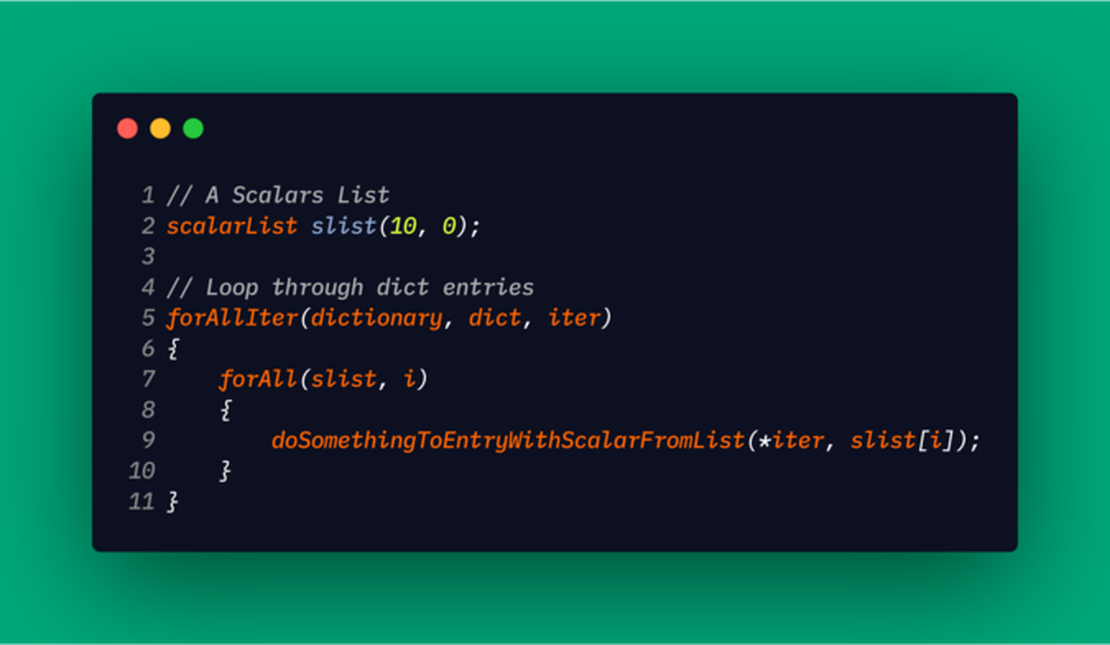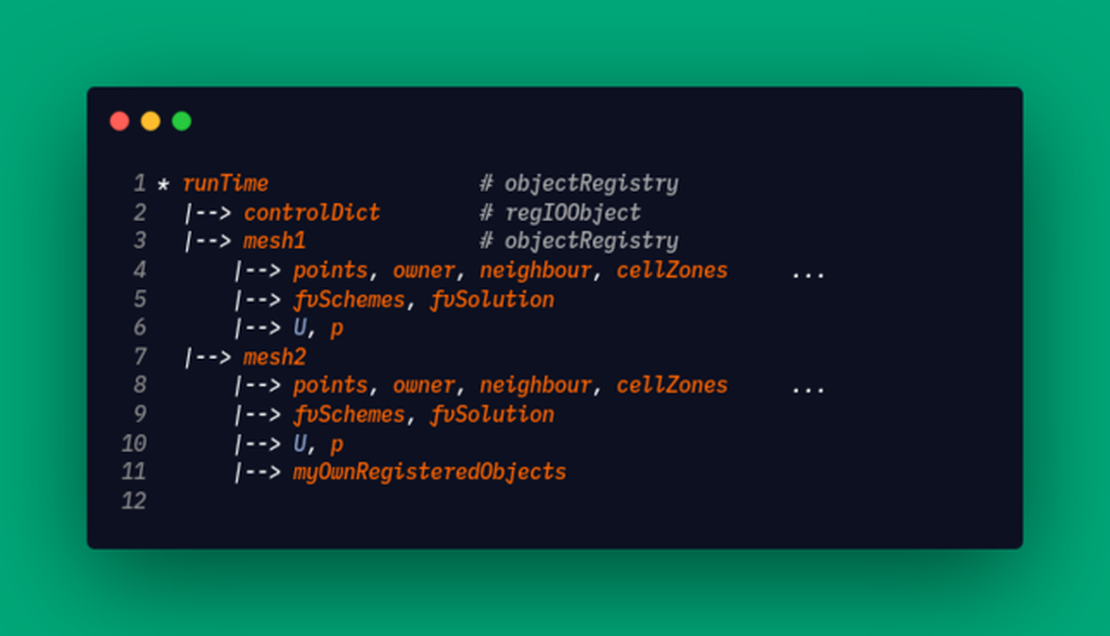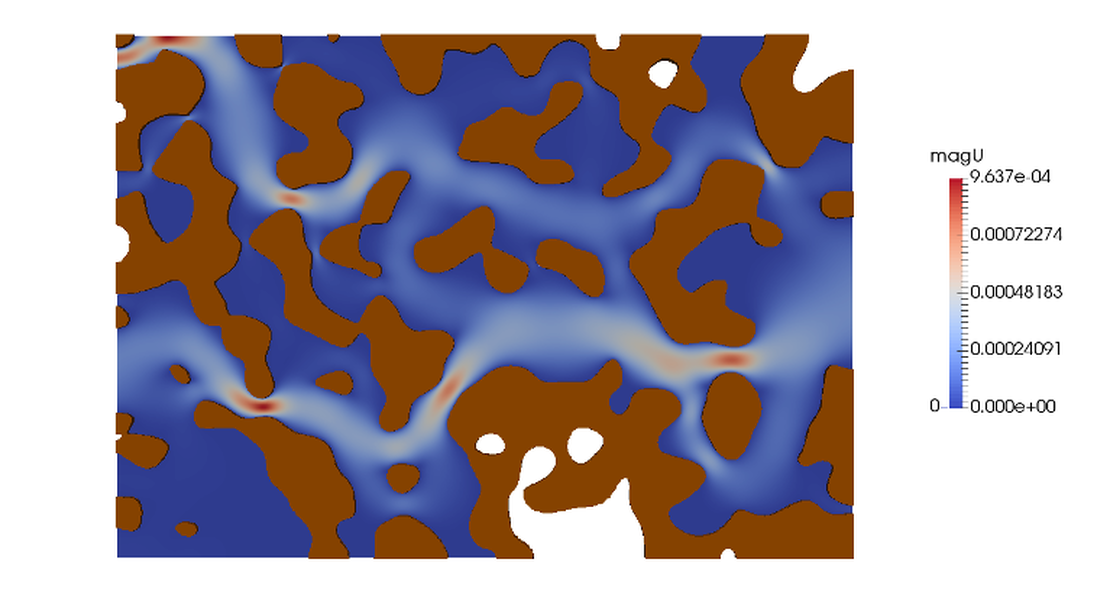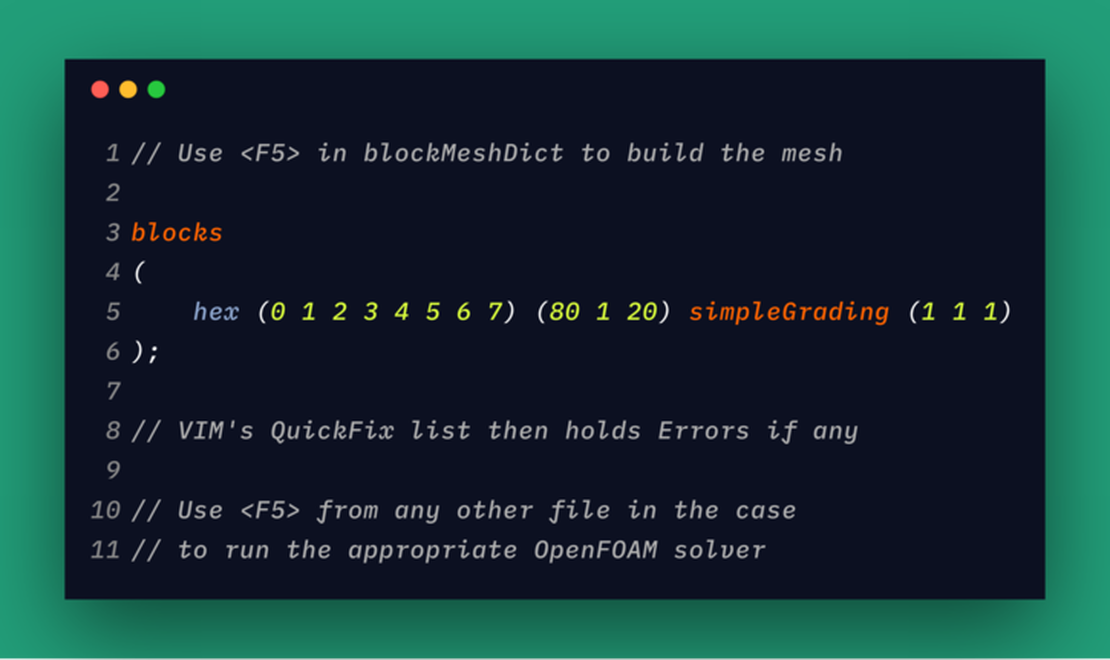
The forAll Macro in OpenFOAM
- Mohammed Elwardi Fadeli
- Programming
- August 29, 2018
Because of the frequent use of range-like loops in OpenFOAM (in the official code base, forks, and any independent work, for that matter), the developers have provided a “shortcut” to loop through all elements of a list—any list. This post aims to address the common misuse of this shortcut. Believe it or not, people abuse the forAll macro in every possible way.
The forAll macro and its “friends”
First of all, we all know that forAll is not part of C++, so it is a user-defined macro. Assuming a recent fork/version of OpenFOAM is sourced, the definition of this macro and similar ones can be found by running the following shell commands:
cd $FOAM_SRC/$WM_PROJECT
grep -r . -e "define.*forAll"
The previous command reveals that there are at least four (4, foam-extend has some more) defined macros to loop through “collections”:
- The good old
forAlland its reversed-looping versionforAllReverse. - A
forAllItermacro specialized in iterating over a Container using an “iterator” and a const-version of it.
Yep, browsing source code is extremely useful (These macros are defined in UList.H).
People need to understand that forAll(list, i) is “just” a shortcut to for (int i=0; i<(list).size(); i++).
Although i is actually a Foam::label in standard OF versions. Strictly speaking; the macro just “works” on any container that has a size() member method (Think of it as a vector of a known size - at construction time). Such containers will probably (publicly) inherit from the UList (The most lightweight-efficient base class for vector-like lists of elements with contiguous storage).
Let’s examine a very simple example of constructing a scalarList (a List<scalar>, publicly inheriting from UList<scalar>).
#include "fvCFD.H"
// * * * * * * * * * * * * * * * * * * * * * * * * * * * * * * * * * * * * * //
int main(int argc, char *argv[])
{
// Create a list of some scalars
scalarList someScalars(10, 0);
// Perfectly fine use of forAll
forAll(someScalars, sc)
{
someScalars[sc] = doSomeCalculations(sc);
};
Info<< "End\n" << endl;
return 0;
}
But this may be misleading; what if someone uses the macro to loop over a “different” type of container, say a dictionary? Is forAll suitable for such tasks?
The answer is in the previous example, actually: Common use of forAll requires the list object to
- Have a
size()member method. - Be efficiently indexable with some method/operator (
operator[]in this case). Otherwise, there is no benefit in looping through some collection if you can’t access its elements!!
So, if dictionary objects verify these requirements; we’re golden.
In fact, the DictionaryBase Template class publicly inherits from the [Link] List Type it is templated on. It’s easy to follow the inheritance diagram of the most commonly used class dictionary to see that there is no size() method defined anywhere. Also, how would one refer to an entry as dictionary[i]??
It should be obvious now that forAll is not the right macro to use in this case. That’s where the second family of macros kicks in: Instead of using a (possibly more efficient) predefined-size container, some situations require the use of “more dynamic” ones that only hold “pointers” to their begin/end positions. An iterator is then used to go back and forth between these positions.
A nice usage of this macro can be found at line 175 of solution.C
file so newer versions of OpenFOAM would understand the older specification of fvSolution.solver.
The const-iter version of forAllIter is also used to read entries of a dictionary into a HashTable…
you can find an example at line 146 of HashPtrTableIO.C
.
A word on UList in OpenFOAM
As far as I can tell, this class is just “well written” - “well thought through”. Its purpose is to provide an efficient base class for “Sub-Lists”. A quick look on the list of classes that directly inherit from it shows how important UList is.
By the way, the class also holds a random access iterator; so it can be used with forAllIter: We use an object (usually called iter) to “point” to a list item each time we iterate. The list item itself is accessed by dereferencing the pointer (*iter).
I’m not aware of a way to get the “index” of an element in a List; It would be inefficient! So I never bothered to search for one. Another thing I should point out is that std::distance probably won’t work without some serious Type Casting :). It’s (was?) dangerous anyway, and I don’t know if a similar function is available for OpenFOAM iterators).
In fact, the use of std::distance takes away one the most important features of iterator-based loops:
The ability to loop through a container where either .begin() or .end() is not reachable from the other (possibly by incrementing iter) as it results in “undefined behavior”.
Note
In recent OpenFOAM versions, GeometricField (volScalarFields …) inherits from UList, so, one can typically loop through their elements with both macros; although template specializations specialize the sense of “loop through their elements”: Some types support looping through internalField; others make it so the loop hits everything.
A word on dictionary in OpenFOAM
This class a good example of a lot of things. “An iterator-based container” as I introduced it in this post is just the tip of the iceberg. The reason I chose it for this post is that most OpenFOAM users consider a dictionary to be a “list” which is not entirely true. The similarity of, for example, getting some IDs (0, 1, 2, 3 … ) for mesh patches from the boundary files does not mean a dictionary is indexable (I’m talking about “old-fashion” indexing here).


